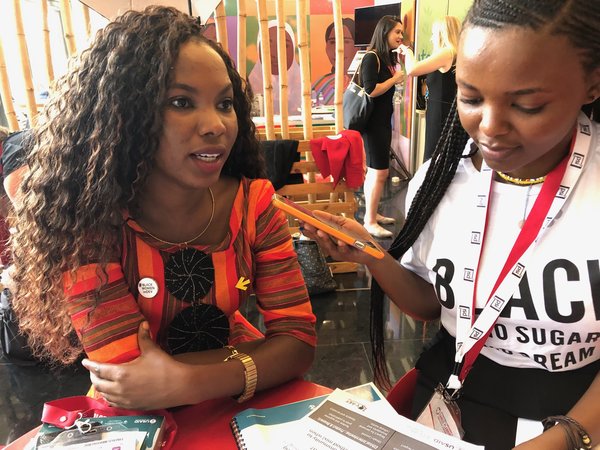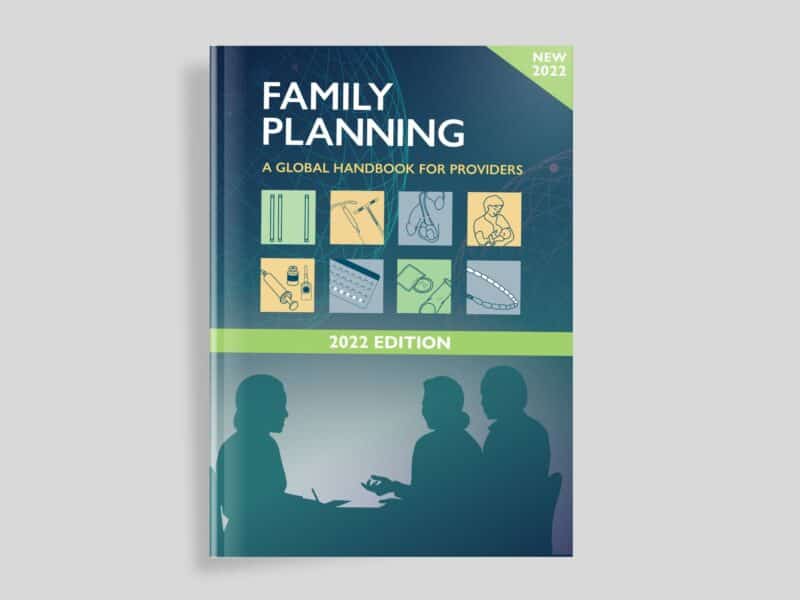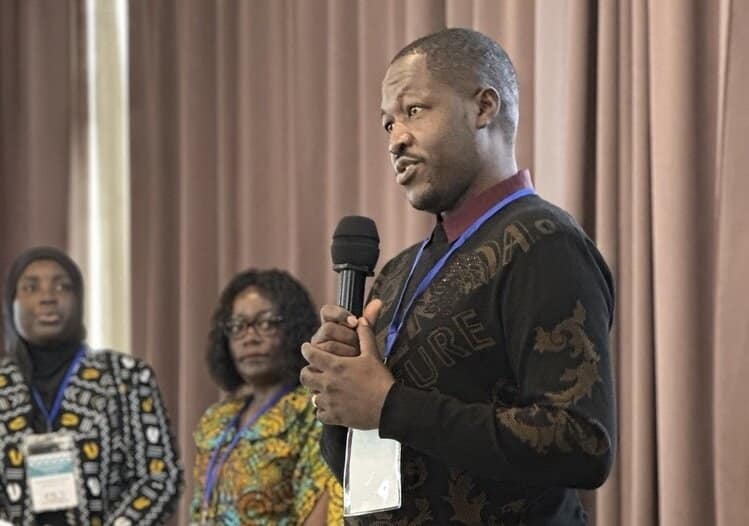In Tanzania, where 21-year-old reproductive health activist Jennifer Kayombo lives and works, the biggest obstacle to obtaining modern contraception are the providers who dispense them.
“They don’t provide services in a friendly way,” she says. “They ask, ‘how old are you?’ If you say you’re 16, they say you’re too young, why are you having sex?” This behavior doesn’t keep young people abstinent, she says. It keeps them from understanding their family planning options and making good choices.
Kayombo was telling this to Rosemary Nazar, 25, who works at PSI in Tanzania. The pair of young women were attending a digital storytelling workshop today led by the Johns Hopkins Center for Communication Programs’ David Alexander at the 2018 International Conference on Family Planning in Kigali, Rwanda.
Alexander is one of the forces behind Family Planning Voices, a joint storytelling initiative led by CCP’s K4Health project and FP2020. He was on hand to give a crash course in how to conduct interviews and capture photographs like those featured on the FPVoices website.
“We’re going to make a story,” he told those assembled. His main advice for interviews: KISS, keep it short and sweet. He suggested asking open-ended questions, being respectful and making sure to back up audio files. On the photography front, he spoke of getting consent, taking photos at eye level and getting close to your subject – “selfie close.”
Kayombo and Nazar took the tutorial to heart. Nazar asked the questions, while Kayombo did the answering.
Since providers in Tanzania are so reluctant to counsel young people about family planning, Kayombo says that young women simply use the form of contraception their friends are using, whether or not that is the most appropriate method for them. If a girl is using oral contraceptive pills, her friends will likely use them. A popular method in Tanzania, she says, is the “morning after pill,” which Kayombo knows “is not a family planning method.”
“We’re scared of getting pregnant,” she says.
Across the room, 26-year-old Ankita Khanna of International Youth Alliance for Family Planning in India spoke of the disconnect between family planning policy and what happens on the ground. She says there is a real problem in her country of girls as young as 15 being sterilized because they aren’t aware of their other family planning options. “Informed choice is missing,” she says.
The participants were encouraged to share the stories they gathered on social media or even to the FPVoices website.
Back at Nazar and Kayombo’s table, Nazar ended her interview by asking Kayombo what family planning means to her.
“To me,” Kayombo says, “it means everything. Accessing a method of contraception – it’s life.”
Replied Nazar: “That was really powerful, Jennifer. Thank you very much.”







